Table of Contents
ToggleIn today’s world, energy efficiency is more important than ever. A home energy audit is a powerful tool that helps homeowners identify where they’re wasting energy and how to make improvements. By assessing energy use, it highlights areas for potential savings, making homes more comfortable and eco-friendly.
Conducting an energy audit not only lowers utility bills but also enhances the overall value of a home. With rising energy costs and growing environmental concerns, understanding energy consumption patterns has become essential. Whether through professional services or DIY methods, homeowners can gain valuable insights into their energy usage and take actionable steps toward a more sustainable lifestyle.
What Is a Home Energy Audit?
A home energy audit is a comprehensive assessment that evaluates a home’s energy performance. This evaluation identifies areas where energy is wasted and recommends improvements. Homeowners may conduct audits themselves or hire professionals with expertise in energy efficiency.
During a professional audit, specialists use tools such as blower doors, infrared cameras, and gas leak detectors. These tools help pinpoint air leaks, inadequate insulation, and faulty systems. Homeowners performing DIY audits can utilize checklists and energy monitoring devices to assess their energy use.
The audit’s results offer a detailed report outlining energy consumption patterns and potential upgrades. Common upgrades include enhancing insulation, sealing leaks, upgrading appliances, and installing energy-efficient lighting. Implementing these recommendations can significantly reduce monthly energy bills and enhance overall comfort.
Benefits of Home Energy Audits

Home energy audits provide numerous advantages for homeowners. By identifying inefficiencies, they can lead to significant energy savings and enhanced comfort levels within the home.
Energy Savings
Energy savings rank among the most compelling benefits of home energy audits. Homeowners often achieve reductions in utility bills by addressing energy waste. Audits reveal inefficient appliances and systems, allowing for targeted improvements. For example, upgrading to Energy Star-rated appliances can lower energy consumption by 10-50%. Air sealing and insulation upgrades may reduce heating and cooling costs by 15-30%. The cumulative effect of these savings can result in thousands of dollars saved over the life of the home.
Improved Comfort
Improved comfort follows closely behind energy savings as a key benefit of home energy audits. Drafty homes often lead to temperature inconsistencies, which can be uncomfortable. An energy audit identifies areas needing insulation and air sealing, promoting a stable indoor environment. Enhancements can lead to better temperature regulation and fewer cold spots. Furthermore, a well-insulated home minimizes noise and improves indoor air quality, enhancing the overall living experience for occupants.
The Home Energy Audit Process
The home energy audit process involves systematic steps to evaluate energy efficiency and identify potential improvements. This process typically includes preliminary steps followed by in-depth assessments.
Preliminary Steps
Homeowners initiate the audit process by gathering relevant documents, including utility bills and previous energy reports. Homeowners determine their objectives, whether focused on reducing costs or enhancing comfort. The next step involves a visual inspection of the home’s exterior and interior, checking for visible signs of energy waste, such as drafts around windows and doors. Homeowners often utilize energy audit checklists to guide their assessments and record observations. Additionally, consulting with an energy auditor can provide valuable insights before commencing a detailed energy evaluation.
In-Depth Assessments
In-depth assessments deploy specialized tools for a comprehensive evaluation of a home’s energy performance. Auditors use blower door tests to measure air leakage and identify drafts, while infrared cameras help visualize temperature variations, revealing insulation deficiencies. Comprehensive checks on HVAC systems, appliances, and lighting ensure these elements function efficiently. The analysis of energy consumption patterns assesses overall energy use, identifying high-consumption areas. After completing in-depth assessments, auditors provide detailed recommendations for enhancements, such as improved insulation, upgraded appliances, or the installation of energy-efficient systems, ultimately leading to decreased energy consumption and increased overall comfort.
Common Findings and Solutions
Home energy audits often reveal common issues impacting energy efficiency. Identifying these problems allows homeowners to implement targeted solutions that enhance energy performance.
Insulation Issues
Insulation deficiencies frequently emerge during audits, leading to heat loss or gain. Common findings include inadequate insulation in attics, walls, and floors. These gaps allow conditioned air to escape, causing increased energy consumption.
Solutions:
- Add Insulation: Utilize materials like fiberglass or spray foam to fill voids, improving thermal resistance.
- Seal Air Leaks: Apply caulk or weatherstripping around windows and doors to prevent drafts and enhance insulation effectiveness.
- Insulate Ducts: Insulate heating and cooling ducts in unconditioned spaces to minimize energy loss.
HVAC System Efficiency
HVAC systems often become a significant focus during energy audits, with many homes neglecting proper maintenance. Common issues include outdated units, incorrect sizing, and inadequate airflow, contributing to excessive energy use.
- Upgrade to Energy-Efficient Models: Replace old HVAC systems with Energy Star-rated equipment that consumes less energy while providing efficient heating and cooling.
- Regular Maintenance: Schedule annual inspections and cleanings for HVAC systems to ensure optimal operation and longevity.
- Optimize Thermostat Settings: Install programmable or smart thermostats to better regulate temperature and reduce energy consumption during non-occupancy hours.
Choosing a Professional Auditor
Selecting a qualified professional auditor involves several key considerations.
- Certifications and Qualifications: Look for auditors with reputable certifications, such as those from the Building Performance Institute (BPI) or the Residential Energy Services Network (RESNET). Such credentials indicate comprehensive training and adherence to industry standards.
- Experience and Reputation: Assess auditors based on years of experience and customer reviews. Seasoned professionals with positive feedback demonstrate reliability and expertise in conducting thorough audits.
- Services Offered: Verify the range of services provided by the auditor. Some auditors may offer specialized services, such as indoor air quality assessments or detailed energy modeling, enhancing the utility of the audit.
- Tools and Techniques: Inquire about the tools the auditor uses for assessments. Professionals should use advanced equipment like blower doors and thermal cameras to accurately identify energy inefficiencies.
- Sample Reports: Request sample reports from potential auditors. Exceptional auditors produce clear and detailed reports outlining findings and actionable recommendations catered to individual homes.
- Cost Estimates: Compare pricing among different auditors. While the cheapest option may save money initially, investing in a thorough and effective audit typically yields greater energy savings and long-term benefits.
- Customer Support: Evaluate the auditor’s customer service approach. Auditors who prioritize customer engagement and offer follow-up consultations typically enhance the overall experience and support homeowners in implementing recommendations.
By carefully assessing these factors, homeowners can choose a professional auditor who effectively meets their energy efficiency needs.
A home energy audit is a vital step towards enhancing energy efficiency and reducing utility costs. By identifying inefficiencies and recommending targeted improvements, homeowners can create a more comfortable living environment while contributing to sustainability efforts. Whether opting for professional services or tackling a DIY approach, the insights gained from an energy audit empower homeowners to make informed decisions.
Investing time and resources into this process not only leads to immediate savings but also increases the overall value of the home. As energy costs continue to rise, prioritizing energy efficiency through a thorough audit becomes increasingly essential for every homeowner. Embracing these improvements paves the way for a greener and more cost-effective future.







